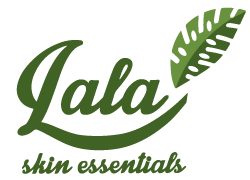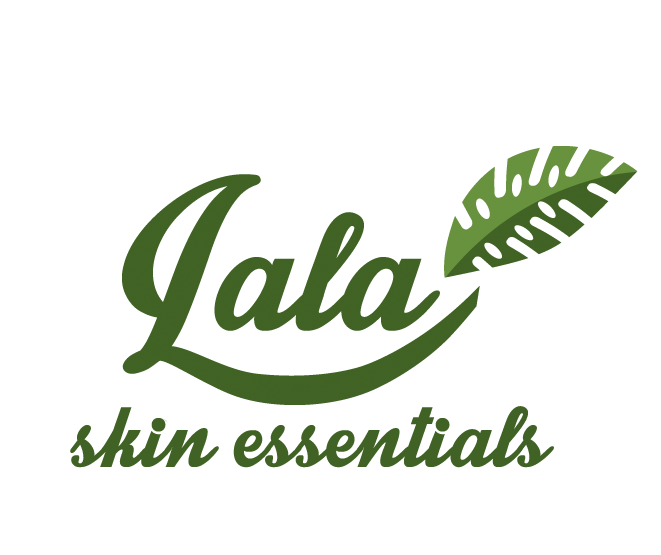©2023 COPYRIGHT BY LALA SKIN ESSENTIALS.
Healthy Foods That Nurture Your Skin
Many factors contribute to the overall health of your skin, and it’s not just about your skincare routine or the products you use Your nutrition and water intake are huge factors in not only the health of your skin, but also in the look and feel of your skin!
It’s easy to overlook the concept of eating healthy to take care of their skin. A reason for this is that we do not physically treat our skin when we are eating.
Your skin retains nutrients from the products you use on it, but it also gets vitamins from the foods you eat. Diets high in vegetables and low on the glycemic index are generally attributed to healthier skin.
The best way to feed your skin all the vitamins, fatty acids, and minerals it needs, is to eat vegetables of every colour. Skin in particular loves vitamins like A, C, and E, antioxidants, and healthy fats like your omegas. So, opting for foods that contain high quantities of these supports your skin’s wellbeing.
The basic science behind it is that our skin cells are constantly replenishing, and nutrition plays a huge factor in maintaining healthy cells. A good way to think of it is that skincare is not just about what we see from the outside, but it is also about what we can’t see.
There are different foods across the board that play a huge role to keep our skin healthy. So,it’s important to keep a balanced diet that consists of all the main food groups. If one area is deficient, it will show in your skin.
So what are the foods you should look for to nourish your skin? Here’s our list of essential foods that are important for maintaining healthy-looking skin. (Just don’t forget to talk to your doctor before making any major changes to your diet or taking any supplements!)
Water
Our bodies are made up of over 70% water (I guess it’s true, we’re just cucumbers with anxiety). With this in mind, it is not unsurprising that staying hydrated is crucial for maintaining our health — and that includes the health of our skin. Your skin clearly tells you when it needs more water, it can become dry and itchy when it isn’t getting enough hydration. When you’re drinking enough water, your skin looks soft and supple.
It is recommended to drink around eight cups of water a day.
The idea of drinking eight cups of water appears to be challenging. However, it could be any food that has water content and doesn’t necessarily have to be just water. It could be a variety of foods such as smoothies, or drinks that contain water.
Not a fan of water? Try these tricks to help your meet your daily water goal:
- Add fruit to your water (like berries, or lemon and lime) this adds flavour (and nutrients)
- Have tea or coffee
- Add a bit of juice to your water
- Have a smoothie (even consider making your smoothie with water as an ingredient)
- Add soup to your diet
Water helps flush out the toxins from our body that are unhealthy for our body. There is a study that shows that “people who drink large amounts of water are less likely to suffer from scars, wrinkles, and soft lines, and they won’t show as many signs of aging as those who drink little amounts of water”. It goes to show how much of a role water plays in maintaining healthy-looking skin.
Vitamin E
Vitamin E is essential for our body because it helps maintain vision, reproduction, and the health of your blood, brain, and skin. Often, Vitamin E is found in health and beauty products that are used to apply to our skin. We can maximize the benefit of Vitamin E by consuming it so that our cells are directly nourished.
You can find Vitamin E in plant-based oils, nuts, seeds, fruits, and vegetables such as:
- Sunflower, safflower, and soybean oil
- Almonds
- Peanuts, peanut butter
- Beet greens, collard greens, spinach
- Pumpkin
- Asparagus
- Mango
- Avocado
| Did You Know? Avocados can play a huge role in the overall health of our skin. It has been researched that avocados have a compound that protects skin from UV damage caused by the sun. This damage causes wrinkles and aging of the skin. The recommended intake of avocado is 50 grams which is about 1/3 of a medium-sized avocado. |
Vitamin D
There is research that shows a link between the intake of Vitamin D and your skin. Los Angeles board-certified dermatologist, Tsippora Shainhouse explains that having enough Vitamin D prevents skin aging along with promoting healthy bone growth, reducing the risk of cancer, and improving overall mood.
Vitamin D can be found in foods such as:
- Cod Liver Oil
- Salmon
- Dairy and plant milks fortified with Vitamin D
- Eggs
While you can get your required amount of Vitamin D through foods, you can also get it from exposure to the sun during certain months of the year, which is one of the best sources of Vitamin D. Though use caution – while the sun can provide enough Vitamin D for the day, sitting too long in the sun can cause skin damage, signs of aging, and even lead to skin cancer.
Zinc
Zinc is one of the most important minerals for the overall health of our skin. It covers a wide range of benefits for our skin such as healing skin after injury and protection against UV rays. In addition, zinc helps cells to grow. It’s even been found that Zinc can help some people with certain skin conditions, like eczema.
You can find Zinc in foods such as,
- Oysters
- Beef
- Crab
- Whole grain
- Milk products
Vitamin K
In the skincare world, there are many creams out there that include Vitamin K to treat different skin conditions. This is because it protects our skin, making it look more plump, smooth, and youthful. This means that it protects and prevents wrinkles and fine lines that can occur on the surface of the skin.
You can find Vitamin K in green leafy vegetables such as kale, collard greens, broccoli, spinach, cabbage, and lettuce.
Conclusion
The key takeaway is that foods are important for maintaining the health of our skin. It is equally as important to make sure you are eating healthy and having a skincare routine. A diet that is rich in antioxidants can prevent skin cells from being damaged.
If you think you are unable to have a balanced diet that consists of all of these foods, multivitamin supplements may be beneficial for you. But of course, speak with your healthcare provider before taking any supplements and before making any major dietary changes.
When you’re eating a well-balanced, nutrient-rich diet your entire body reaps the benefits, including your skin.

